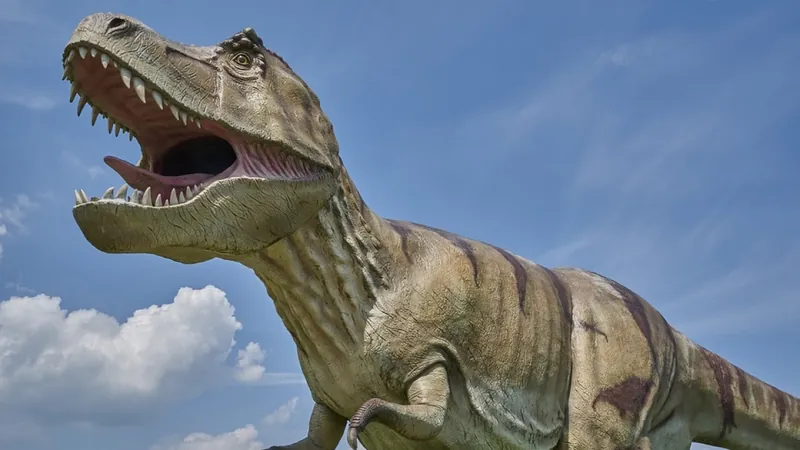
Fossilised Dinosaur Droppings Could Uncover Secrets of Their Evolution Into Earth's Dominant Species!
2024-11-28
Author: Amelia
Fossilised Dinosaur Droppings Could Uncover Secrets of Their Evolution Into Earth's Dominant Species!
A groundbreaking study featured in *Nature* has shed new light on the ecosystem during the reign of the dinosaurs, revealing crucial information about their evolutionary journey to becoming the dominant species on Earth. By examining fossilised feces, commonly known as coprolites, researchers have uncovered a treasure trove of undigested food remnants, providing unprecedented insights into the dietary habits and ecological functions of dinosaurs living approximately 200 million years ago during the Late Triassic period.
Incredible Discoveries from Coprolite Research
The study primarily concentrated on the northern regions of the ancient supercontinent Pangea, with a remarkable collection of materials amassed over the course of 25 years. Scientists employed advanced imaging techniques to explore the intricate structures within the coprolites, revealing well-preserved remnants of fish, insects, and larger prey items. A striking discovery was made: evidence of bones that had been consumed and digested alongside salts and marrow, reflecting behaviors similar to those of modern-day hyenas.
Additionally, coprolites belonging to herbivorous dinosaurs, such as early sauropods, revealed fascinating contents, including tree ferns and various plant remains. Researchers were particularly intrigued to find charcoal present in these samples, which suggests that some dinosaurs may have ingested charcoal to neutralise toxins from specific ferns, an extraordinary survival strategy.
Adaptability: The Key to Survival and Dominance
This groundbreaking research highlights the remarkable dietary diversity of early dinosaurs as a key driver of their evolutionary success. Grzegorz Niedźwiedzki, a co-author of the study, emphasized the significance of adapting to shifting environments through varied plant consumption. According to the research, these herbivorous dinosaurs showed a preference for tender, fresh plant shoots, which were crucial for their survival during periods of environmental upheaval in the Late Triassic.
The findings from this study not only illuminate the adaptability of dinosaurs in their diets and behaviors but also reveal how these traits allowed them to flourish in the face of climatic challenges. This adaptability ultimately laid the groundwork for the dinosaurs' future dominance across the planet.
As we continue to unlock the mysteries of these ancient creatures, the role of adaptability in their success is becoming clearer than ever. Stay tuned for more exciting discoveries in the world of paleontology!









 Brasil (PT)
Brasil (PT)
 Canada (EN)
Canada (EN)
 Chile (ES)
Chile (ES)
 España (ES)
España (ES)
 France (FR)
France (FR)
 Hong Kong (EN)
Hong Kong (EN)
 Italia (IT)
Italia (IT)
 日本 (JA)
日本 (JA)
 Magyarország (HU)
Magyarország (HU)
 Norge (NO)
Norge (NO)
 Polska (PL)
Polska (PL)
 Schweiz (DE)
Schweiz (DE)
 Singapore (EN)
Singapore (EN)
 Sverige (SV)
Sverige (SV)
 Suomi (FI)
Suomi (FI)
 Türkiye (TR)
Türkiye (TR)